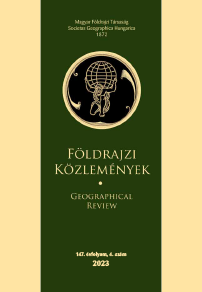Az akadálymentesség-természetű térélményszerzés sajátosságai utazástudományi tükörben
Absztrakt
Tanulmányunk azzal a céllal íródott, hogy a filozófia eszköztára által és empirikusan is igazolható módon bemutassa az emberi létezésnek otthont adó tér ki- és átalakításának szükségszerűen szubjektív aspektusait az utazástudomány kontextusaiban. Ezt a szellemi és gyakorlati emberi tevékenységet nevezzük akadálymentesség-természetű „kézhezállóságnak”, mely a Földön való létezésünk elengedhetetlen feltétele és mozgatórugója is. A tanulmányban kontextualizáljuk egyrészről ennek nyomán a fogyatékossággal élő, utazni vágyó emberek élmény- és térhasználati igényét az „egészséges” társaikéval összehasonlítva, melyek nem mutatnak érdemi különbségeket – fókuszálva az akadálymentességi igénnyel bíró utazók alapvetően az alul- vagy dezinformáltság körül fluktuáló utazásszervezési nehézségeire. A probléma feltárása, elemzése és a megfogalmazott javaslatok eseteiben is aktívan támaszkodunk a filozófia több ezer évre visszanyúló „eszköztárára”, melyet már több esetben sikeresen integráltuk eddig megjelent tanulmányainkba. Meggyőződésünk, hogy ezzel a „módszertannal” sikerül(t) elmélyíteni az utazástudomány gondolatvilágát és akadémiai üzenetrendszerét. Tisztában vagyunk vele, hogy az általunk alkalmazott megközelítésmódok és a filozófia világának nyelvezete viszonylag távol áll a főáramú és elvárt akadémiai fogalmazásmódtól, de kis odafigyeléssel és nyitottsággal ez a nehézség áthidalható – akadálymentesség-természetűvé tehető. Ezen kontextushálóba szőve igyekszünk továbbá ráirányítani a figyelmet az online szállásadói és -disztribútori felelősségre, illetőleg javaslatokat is megfogalmazunk a látszólag paradox egyéni tér- és épülethasználati igények feltérképezhetőségének megteremtése érdekében.
Copyright (c) 2024 Zoltán Raffay, Jácint Farkas, László Csóka

This work is licensed under a Creative Commons Attribution-NonCommercial-NoDerivatives 4.0 International License.



